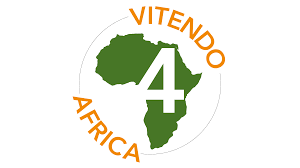Vitendo4Africa Partners with the Saint Louis Zoo and Perseveres Through COVID-19
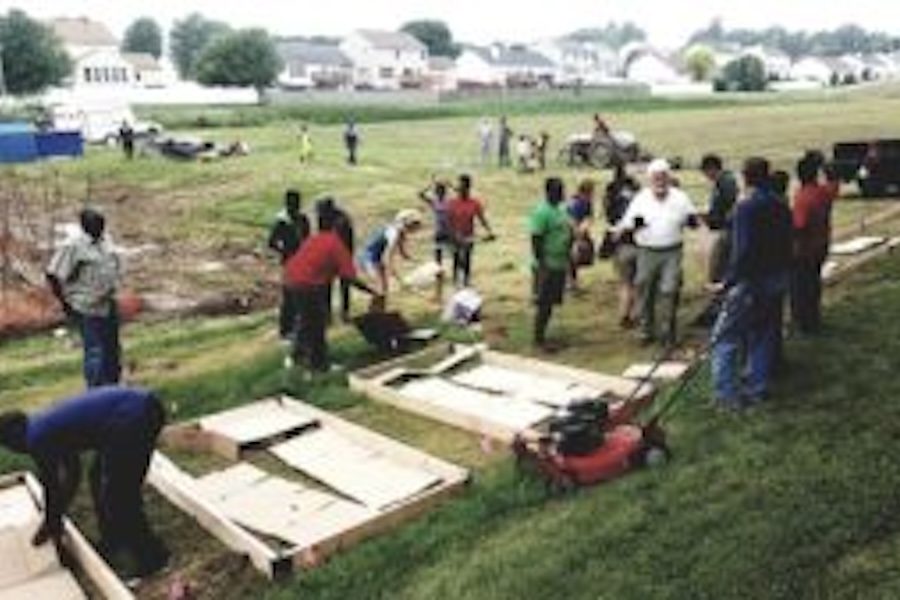
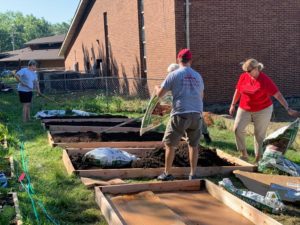
Volunteers working to prepare the community garden in Florissant, Shamba la Kijiji (photo credit: Vitendo4Africa)
Vitendo4Africa has partnered with the Saint Louis Zoo to provide a community garden to provide fresh, organic food. The garden is located in a 11-acre plot of land behind Christ Covenant Church in Florissant.
To build an enduring relationship with the immigrant community, the Saint Louis Zoo WildCare Institute and the Center for Native Pollinator Conservation partnered with Vitendo4Africa to create an urban garden in June 2019. Christ Covenant Church donated the land to establish the community garden (Shamba la Kijiji) and also provided the labor to complete the project. The Saint Louis Zoo also provided expertise on planting and attracting pollinators to prepare the land. Plants were also donated by Greenscape Gardens.
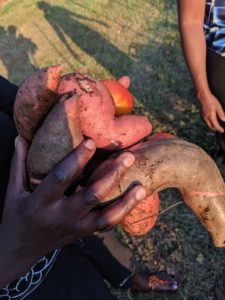
Fresh, organic vegetables at Shamba la Kijiji community garden in Florissant (photo credit: Vitendo4Africa)
“Immigrant communities struggle to adapt to American fast foods. They value native foods that include varieties of white corn, tomatoes, cabbages, onions, pumpkins, beans, and fruits that form part of their traditions,” said Geoffrey Soyiantet, President and CEO of Vitendo4Africa. “Shamba la Kijiji helps to bring the community together.”
However, due to the COVID-19 pandemic, the organization has been affected but is persevering. “Like many organizations, COVID-19 has affected the services we provide to our clients. With social distancing requirements, we are not able to host many workshops and training which requires face to face interactions,” said Soyiantet.
In addition, the organization has been working to provide health education and structured networks of care to African communities during the COVID-19 pandemic. Vintendo4Africa has also established a process for food provision, in-home education and remote learning. Aiming to establish coding classes for immigrant youth and expanding collaborative networks in health research has also been a major goal during COVID-19.
Soyiantet also express that there are cultural barriers and many of the immigrants they work with are unsure of the quality of education and information about COVID-19 from media sources. ‘”We have been working with public health professionals within our community to increase trust through holding regular community webinars to better inform the immigrant community,” said Soyiantet.
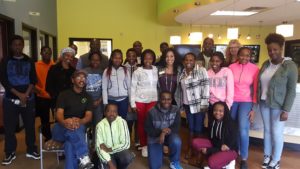
Geoffrey Soyiantet (left, first row) and African youth at a past community event (photo courtesy of Vitendo4Africa)
Vitendo4africa was founded in 2009 to support the growing number of African immigrants and refugees, many escaping from war-torn countries, settling in the greater St. Louis area. Vitendo4Africa is a nonprofit organization whose mission is to empower stronger, healthier immigrant individuals and families through advocacy, the provision of support and services, strengthening alliances, and developing strategic collaborations.
Over the years, Vitendo4Africa has expanded to reach more than 20 nationalities and impacting over 25,000 immigrants in St. Louis. In Swahili, Vitendo means “action,” and has a significant meaning. “Many unmet needs have been exposed within the community. After a group of African Community leaders came together, we realized we needed to take significant action (vitendo),” said Soyiantet. “As a result of our collective immigration journeys, we have developed higher understanding and compassion for those with similar experiences within the African community.”
“Our organization exists to provide immigrant and refugee families with direct services and interconnected resources to improve their quality of life.”
The organization also works closely with the St. Louis Mosaic Project. “The St. Louis Mosaic Project has been our strongest advocate on issues that relate to international restaurants, foreign born professionals, promoting African culture, and diversity in schools through the The St. Louis Mosaic Project Ambassador Schools Program,” said Soyiantet. “We also work together to promote African immigrant entrepreneurs in the region connecting them with information and resources they need to thrive.”
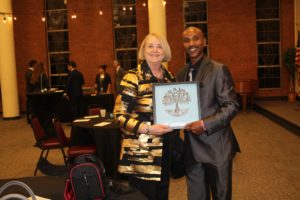
Betsy Cohen, Executive Director for the St. Louis Mosaic Project and Geoffrey Soyiantet, President and CEO for Vitendo4Africa (photo credit: Vitendo4Africa)
Vitendo4Africa has exciting plans for the future. The organization plans to establish a partnership with daycare service providers, transportation companies, and after-school programs to address barriers and improve the lives of immigrant families. The organization also plans to acquire a property where all these services will be available for the community.
“The population we serve is very vibrant and hardworking with great potential to venture into business startups and become great leaders for our region,” said Soyiantet. “We believe that empowering this population will not only increase the number of productive citizens in our region, but it will also increase employment and promote diversity.”
For more information about Vitendo4Africa, visit their website here.
